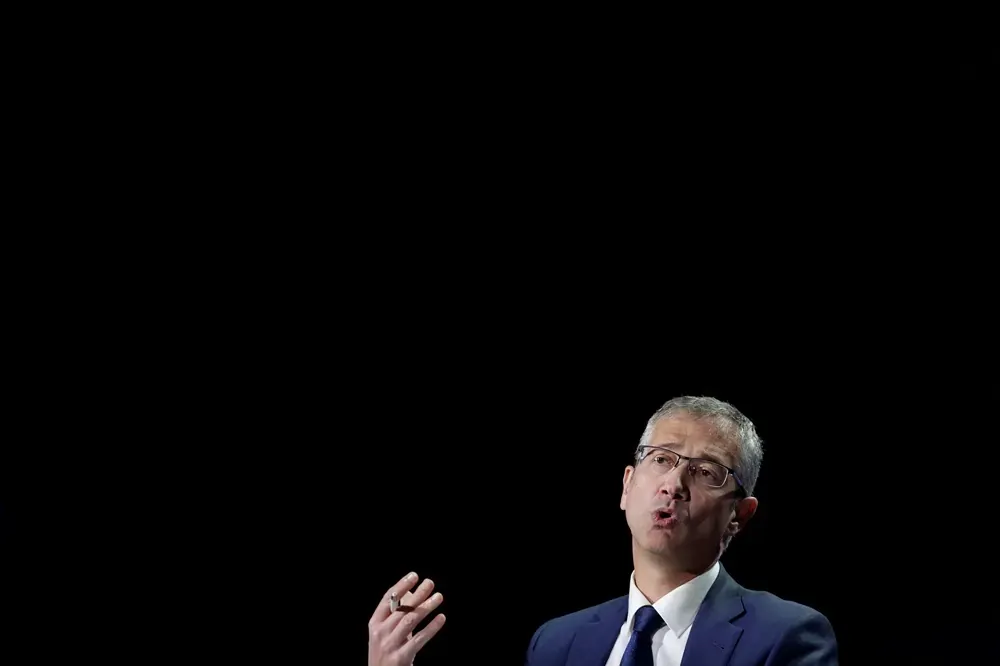
Bank of Spain governor warns of risks of extending bank windfall tax
MADRID (Reuters) – Any potential extension of the current Spanish windfall tax on banks should take into account the preservation of financial stability and correct transmission of monetary policy, Bank of Spain Governor Pablo Hernandez de Cos said on Wednesday.
His comments come just weeks after a potential extension of the windfall tax on banks and large energy companies was agreed in a coalition deal between centre-left parties seeking to form a government. The coalition has yet to win the backing of other parties in parliament.
Neither the Socialists nor their leftist party Sumar provided details on what exactly would be taxed, besides saying that they would review the levies on banks and energy companies with a view to adjusting and maintaining them beyond their current period of application.
“It is very important to take into account, whether you want to introduce such a tax or to keep it on a more permanent basis, how it affects financial stability and the transmission of monetary policy itself,” De Cos told a financial event.
He said it would be more desirable to retain the capital of the banks and boost the resilience of the banking sector at a time of high uncertainty.
“We are aware that the profitability of the banking sector is high but we think that there is an important part of this increase in profitability that is not going to be permanent and there are also many economic risks at a global level and in the Spanish economy,” he said.
De Cos said that in the case of the Spanish banking tax, “the design itself can be very much improved.”
Last month, Caixabank’s Chief Executive Officer Gonzalo Gortazar said any windfall levy on Spanish banks should tax profits and not revenues as was happening now.
Taxing revenues in Spain instead of profit means that even a bank with potential losses might be taxed, hitting capital.
The government last imposed a two-year, 4.8% levy on banks’ net interest income and net commissions above 800 million euros ($880 million) in December 2022.
(Reporting by Jesús Aguado; Editing by Emma Pinedo and Bernadette Baum)


